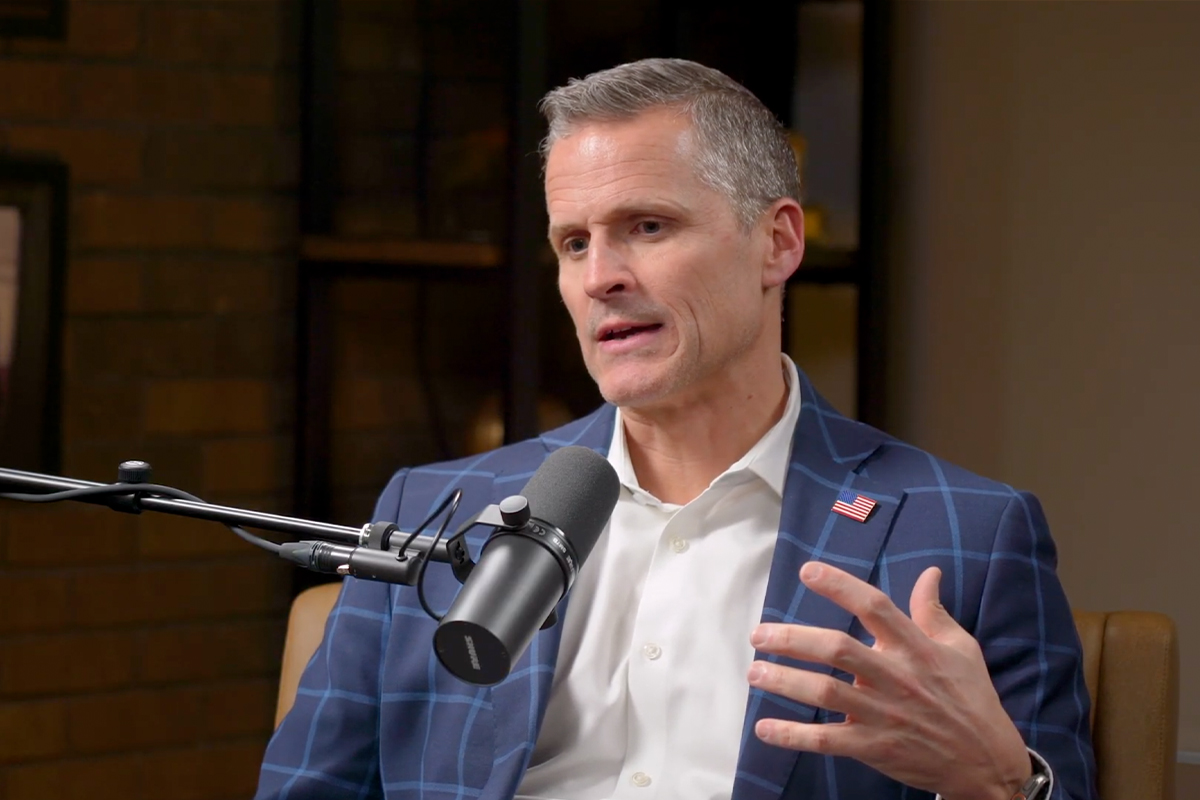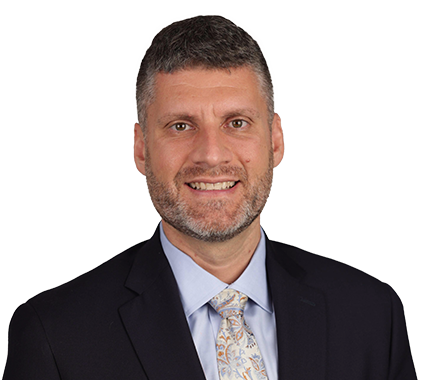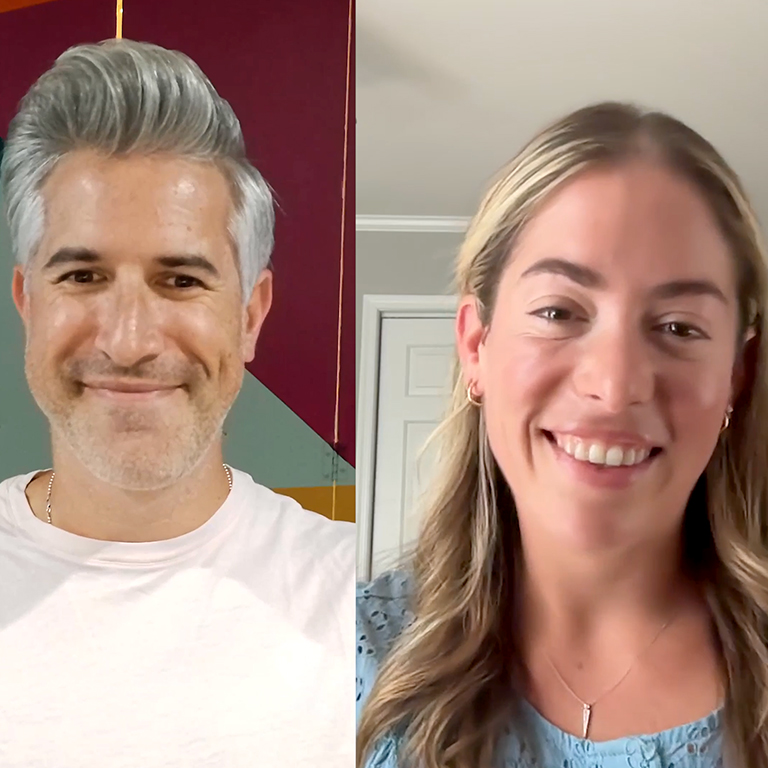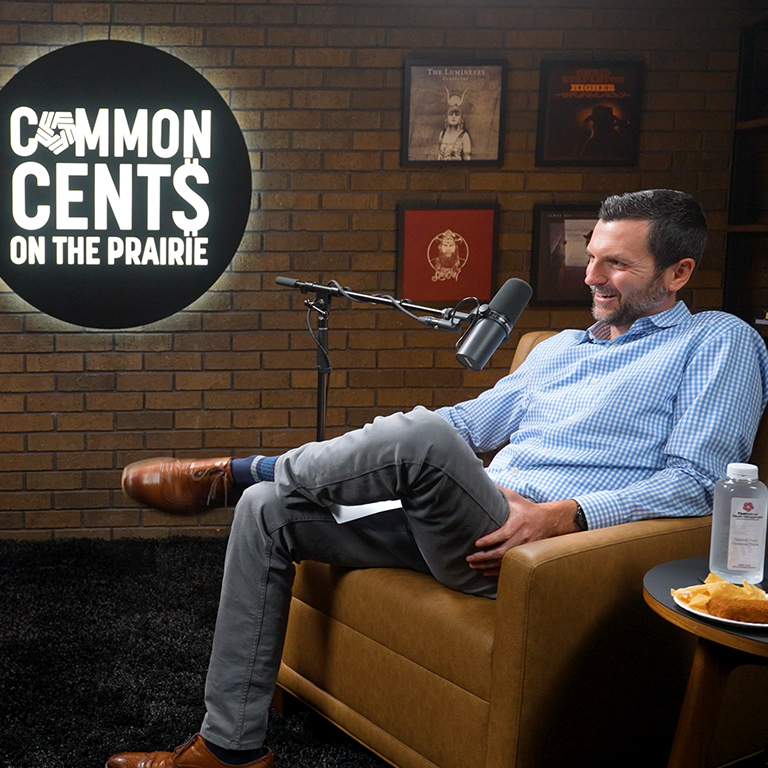A candid conversation with Mayor Paul TenHaken about personal finances
Common Cents on the Prairie™“One of my first memories about money is, I built a little treasure chest…and it had a compartment in it. And I cut up two pieces of cardboard, and I put them in this treasure chest, and I would put all my money in those three slots. And one was for the church, one was to save, and one was to spend.”
When it comes to personal finances, Sioux Falls Mayor Paul TenHaken says he had an understanding of money as young as 5 or 6 years old, beginning with his three-compartment wooden treasure chest.
“I’d drop a dollar in here or drop, you know, some money into the different compartments,” Paul said on a recent episode of our Sioux Falls-based podcast, Common Cents on the Prairie™.
“But when I think about money early on, I think of that crusty, old treasure box that I created and how that concept of tithing, saving, (and) spending was…just something I had at a very, very young age.”
Paul sat down with Adam Cox, host of the financial education podcast, for a candid conversation about personal finances.
They talked about everything from Paul’s childhood money experiences to the financial discussions he’s had with his wife, Jill.

The importance of giving back and saving
“Growing up, we weren’t rich,” Paul said, elaborating on the money background that influences his financial decisions still today.
“We had a good life. My parents did, though, really stress the importance of giving back — you know, giving back to your community, giving back to the church — (and) of making sure that you’re saving.”
When asked by Adam if he ever rebelled against those money habits, Paul said that he’s “always been a saver.”
It’s even something he’s instilled in his 16-year-old son, Max, whom he described as “a chip off the old block.”
“The kid spends no money,” Paul said. “Won’t go to Burger King unless he has a coupon.”
As for the giving aspect, he and his wife have been deliberate about including their kids in those discussions.
“Let’s say you cut a check to an organization; it just goes in the mail, and your kids never see it,” Paul said. “Or, we give to our church. It’s all ACH, so they never see us put money into an offering plate, per se.”
He added, “Because that practice is not visible anymore, I think it’s more important to talk to your kids.”
In addition to conversations about where they currently donate money, Paul says his family makes group decisions about which organizations they’re choosing to support.
“Several times a year, we ask our kids. We’re like, ‘Hey, we’re thinking about supporting some organizations. What do you think about this one or that one?’ Try to let them feel like they’re having some input into some of those decisions.”
The financial side of running for mayor
“It was a huge decision,” Paul said of running to be the 32nd mayor of Sioux Falls.
“Luckily, I have a very, super supportive wife, that her response to most crazy things I come up with is, ‘Hey, I just want you to be happy.’”
Transitioning from his role as founder and CEO of Click Rain to mayor meant a shift in finances for the couple.
In their discussions, according to Paul, he and Jill agreed to make cuts wherever they needed — such as driving older cars — to make their situation work.
“As soon as the ‘keeping up with the Joneses’ mentality flees you, it’s very freeing,” Paul said.

He added that personal finance is all about perspective. “Did we have to make life changes? For sure. We totally did. But none of them were insurmountable and so big that it made it not worth it.”
“The Code of Contentment”
“If you think contentment is found in money, or in stuff, or in your job, or in your LinkedIn profile, or in status, you are going to chase that and never find it.”
After the past seven years of public service, Paul believes he’s cracked his code of contentment.
In fact, he even wrote a book on his findings.
“Being the mayor of Sioux Falls has been a leadership gauntlet, and specifically going through the pandemic,” Paul said. “That just chewed me up and spit me out weekly. And I learned so much from that about myself, about our community, about resiliency, about dealing with difficult people, about challenging situations.”
From those experiences came “The Code of Contentment,” a 52-week devotional he published in May 2024.
“I journal, writing a lot of things down,” Paul said, “and I’m like, you know what? I’m just going to start putting some of these things into bite-sized, kind of weekly lessons.”
With questions like “What’s bringing you joy this week” and “What’s one thing you’re going to do this week to work on your physical or mental health?”, Paul’s book challenges readers to look more closely at the things in their life that bring them fulfillment.
He says those things are going to be unique for each individual, but that his personal sense of fulfillment comes from outside of money.
“Contentment and fulfillment [are] something deeply personal to each individual,” Paul told Adam. “And I can’t tell, Adam, what’s going to bring you contentment. You have to get there on your own, and you have to find that on your own. And for me, contentment meant letting money lose its grip on me.”
We’ve only covered a fraction of what Mayor Paul TenHaken and Adam discussed on the podcast. If you want to hear more, watch the full episode at the player below!
And if you want to talk with an expert about your own financial situation, including how to find contentment outside of money, reach out to Adam and our team at First National Wealth Management; we’d be happy to have a conversation.
Any comments, insights, or strategies discussed in this article are intended to be general in nature and, therefore, may not be suitable for you and your situation, whatever that may be. Before acting on anything written here, please consult with your attorney, CPA, and/or your financial advisor.




